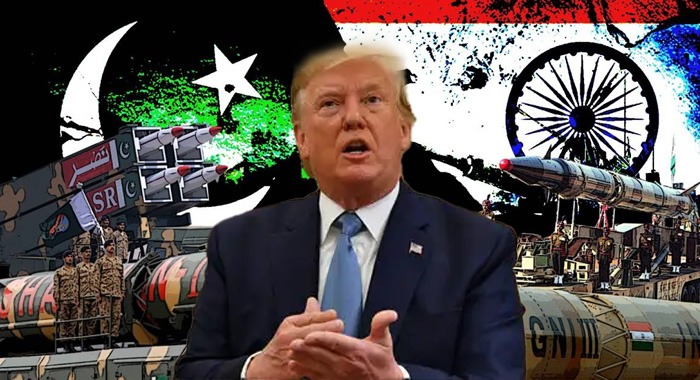U.S. President Donald Trump on Sunday revealed that American diplomatic pressure played a decisive role in halting a potential nuclear confrontation between India and Pakistan, following days of heightened military escalation between the two South Asian neighbours.
Speaking at a press conference at the White House, President Trump stated that it was due to Washington’s intervention that the two countries agreed to a ceasefire. “With the help of the U.S. administration, a peace deal between Pakistan and India was made possible,” Trump said, adding that both leaders were “steadfast in their positions,” but he warned them that continued aggression would jeopardise future trade relations with the United States.
“I told them — if you don’t stop this war, there will be no trade deals,” Trump emphasized.
Also Read: This Is the Ideal Time to Bring Kashmir to the Front Line, Says Mushaal Mullick
According to the U.S. president, economic considerations were key to the de-escalation. “The war was stopped because of trade,” Trump claimed, expressing his administration’s readiness to assist both nations in enhancing trade ties. “We are already negotiating a trade agreement with India and will also engage with Pakistan,” he noted.
President Trump voiced optimism that India and Pakistan would show similar responsibility in the future to avoid further conflict, stating, “I hope both countries will demonstrate this level of maturity moving forward.”
The statement comes in the aftermath of Operation Bunyanum al-Marsoos, a large-scale retaliatory campaign launched by the Pakistan Armed Forces in response to Indian strikes. The operation inflicted significant damage on key Indian military installations and compelled New Delhi to agree to a ceasefire under growing international pressure.
While both sides have claimed restraint and tactical success, it was widely reported that the U.S. played an active mediating role. Secretary of State and the U.S. Vice President reportedly maintained direct communication with top leadership in Islamabad and New Delhi during the crisis.
The ceasefire is currently holding, and the international community has cautiously welcomed the pause in hostilities, while urging both countries to return to the negotiating table for a long-term solution — particularly on the lingering Kashmir dispute, which remains at the heart of regional tensions.





